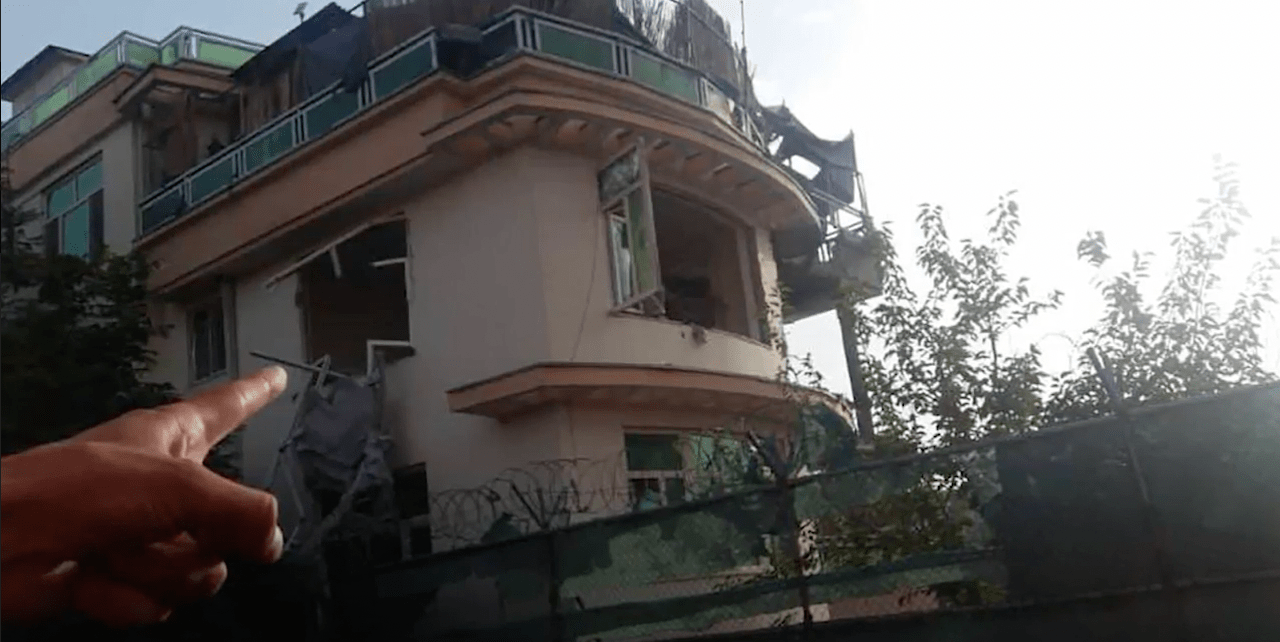Radical Islam
Because You Asked: Why Have the Sunni States Aligned Against Qatar?
An ATP Report Production – on this episode Barry Nussbaum explains the significance of why the Sunni states turned against Qatar as a result of Trump’s Middle East summit.
Welcome to Because You Asked, I’m Barry Nussbaum.
Early last week, a number of Sunni Middle Eastern countries including Saudi Arabia, the United Arab Emirates, Bahrain, Egypt, and Yemen, cut off all diplomatic and economic ties with the tiny Gulf state of Qatar. Those countries accused the Qataris of funneling money to Islamist groups, including the Muslim Brotherhood and Hamas, and of keeping inappropriately close ties with Iran. Trump himself was involved, adding fuel to the rivalry by tweeting support for the Saudi coalition, despite Qatar’s indispensable role in United States’ military operations in the region. The planes that bomb ISIS targets in Syria take off from the Al Udeid Air Base in Qatar, which is the forward headquarters of U.S. Central Command.
Today on Because You Asked, we will answer the question, why did the Sunni states move against Qatar last week and will it cause Qatar’s behavior to change?
Before we look at the incidents that led up to this decision, let’s see it in context. Just a few weeks after President Trump convened and led the largest American/Arab summit ever, the moderate states have moved as a block against the second leading sponsor of terrorism in the Middle East. This is huge news, so why did they do it?
Since 9/11, the United States-led global effort to disrupt terrorist financing has been constant although not consistently applied. Domestic laws and United Nations Security Council resolutions have been passed; entities and individuals have been subject to national and U.N. sanctions; and some suspected conduits for terrorist funding, such as remittance companies and charities, have been shut down. Despite all this, the commitment of some key nations, including Qatar, has been repeatedly questioned.
In 2010, WikiLeaks published 250,000 leaked diplomatic cables, mostly from 2003 to 2010. These include cables marked “secret” and “confidential” from embassies and consulates in the Middle East. Of them, 536 reference both Qatar and Hamas, and 70 relate to Qatar and terrorism financing. The cables reveal numerous concerns among U.S. allies that Qatar was hosting extremists.
During the Bush presidency, the Emir of Qatar claimed he warned U.S. Secretary of State Condoleezza Rice that Hamas would win the elections in Gaza. After Hamas won, the Bush administration asked Qatar to cut off financial assistance to Hamas and its government, which Doha (the Qatar capital) refused. When Hamas was isolated in Gaza, the Palestinian authority told the Americans in 2007 that Qatar was using charities to move funds to the strip. Some of these organizations may have been the same as those that appear on a list sent from the U.S. Embassy in Israel to Washington in 2008, including the charitable Qatar society and Palestine Qatar committee for relief in Palestine.
Qatar’s overall level of counterterrorism cooperation with the U.S. is considered the worst in the region.
The U.S. cables reference Qatar’s connections to Hamas, Hezbollah, Iran and Syria. While Qatar told the Americans it wanted to play a helpful role in the Israel-Palestinian peace process and said Hamas supported a two-state solution, Doha also hosted meetings with Iran’s president, Hamas, Islamic jihad and others.
Qatar pursued a two-pronged policy, after 2007 it held frequent conversations with Hamas officials such as Khaled Mashaal, Mahmoud Al-Zahar and Ismail Haniyeh, while also telling the Americans it would welcome a way to smooth over relations with Israel. Qatar had hosted an Israeli trade office from the 1990s to 2009. The dispute that has seen Saudi Arabia and its Gulf allies isolate Qatar stems from allegations that the tiny gas-rich nation is sponsoring extremist groups which are destabilizing the Middle East.
This is not the first time Qatar’s neighbors have expressed their displeasure over its individualist foreign policy – diplomatic relations were severed for nine months in 2014.
In 2014, then-U.S. Under Secretary for Terrorism and Financial Intelligence David Cohen noted “Qatar, a long-time U.S. ally, has for many years openly financed Hamas, a group that continues to undermine regional stability.” Press reports indicate that the Qatari tensions have arisen from Qatar’s support for the Islamist Muslim Brotherhood, its close relationship with groups such as the Taliban and certain Al-Qaeda affiliates, and its relationship with Iran, which has most recently led to allegations from Saudi Arabia that the state-funded broadcaster Al Jazeera is supporting Houthi rebels in Yemen fighting government forces backed by Saudi Arabia and the United Arab Emirates.
The de facto embargo imposed on Qatar has prompted fears about shortages of basic goods. Thus, it is Qatar’s alleged continued funding of radical ideology and extremism that is the cause of concern this time. Saudi says Qatar must implement “promises made” over extremist groups. Saudi Arabia, the UAE, Egypt and Bahrain severed all ties with Qatar, accusing it of supporting terrorism. Al-Jubeir added that Qatar was undermining the Palestinian authority and Egypt in its support of Hamas and the Muslim Brotherhood and backing “hostile media.”
The two Arab nations fell into a deep row this week when Saudi Arabia abruptly announced that it would be cutting off important diplomatic and financial ties to its Persian Gulf neighbor.
The foreign minister’s comments came just hours after U.S. President Donald Trump, wading into the deep rift among Arab states, said on Tuesday his trip to the Middle East was “already paying off,” as governments there took a hard-new line in accusing Qatar of funding militant groups. The campaign to isolate Qatar was disrupting trade in commodities from crude oil to metals and food, and deepening fears of a possible shock to the global gas market, where the tiny Gulf state is a major player.
The Pentagon, however, renewed praise of Qatar on Tuesday for hosting U.S. forces and its “enduring commitment to regional security,” sticking to a message of reassurance while Trump, via twitter, applauded a decision by Arab powers to cut ties to the Gulf ally. Boy, still an American mixed message! Basically, the U.S. has sent contradictory signals for years. Don’t support terrorism, but keep buying our weapons and hosting our airbases! In addition, a yearning for the U.S. to be portrayed positively on the Qatar owned worldwide network Al Jazeera, seems to have continually influenced the U.S. to not put more pressure on Qatar.
Meanwhile, Qatar will probably collapse from economic isolation if they don’t give in so, expect them to comply. The big question now is Iran next?
Please keep your questions coming to American Truth Project and our social media on Facebook or twitter. If we select your question you will get a special gift! You can also write to me directly by sending me an email to: barry@3xu.0c4.myftpupload.com. And go to our website where you can sign up to be on our mailing list so you never miss an important episode. We’re here to answer your urgent questions because you asked, I’m Barry Nussbaum.












Robin Rosenblatt
June 15, 2017 at 10:10 am
The Muslims have been killing each other for 1400 years or longer. It is because they are a trible culture and have Islam that in based on force, strengh, Slavery, murder and Evil.